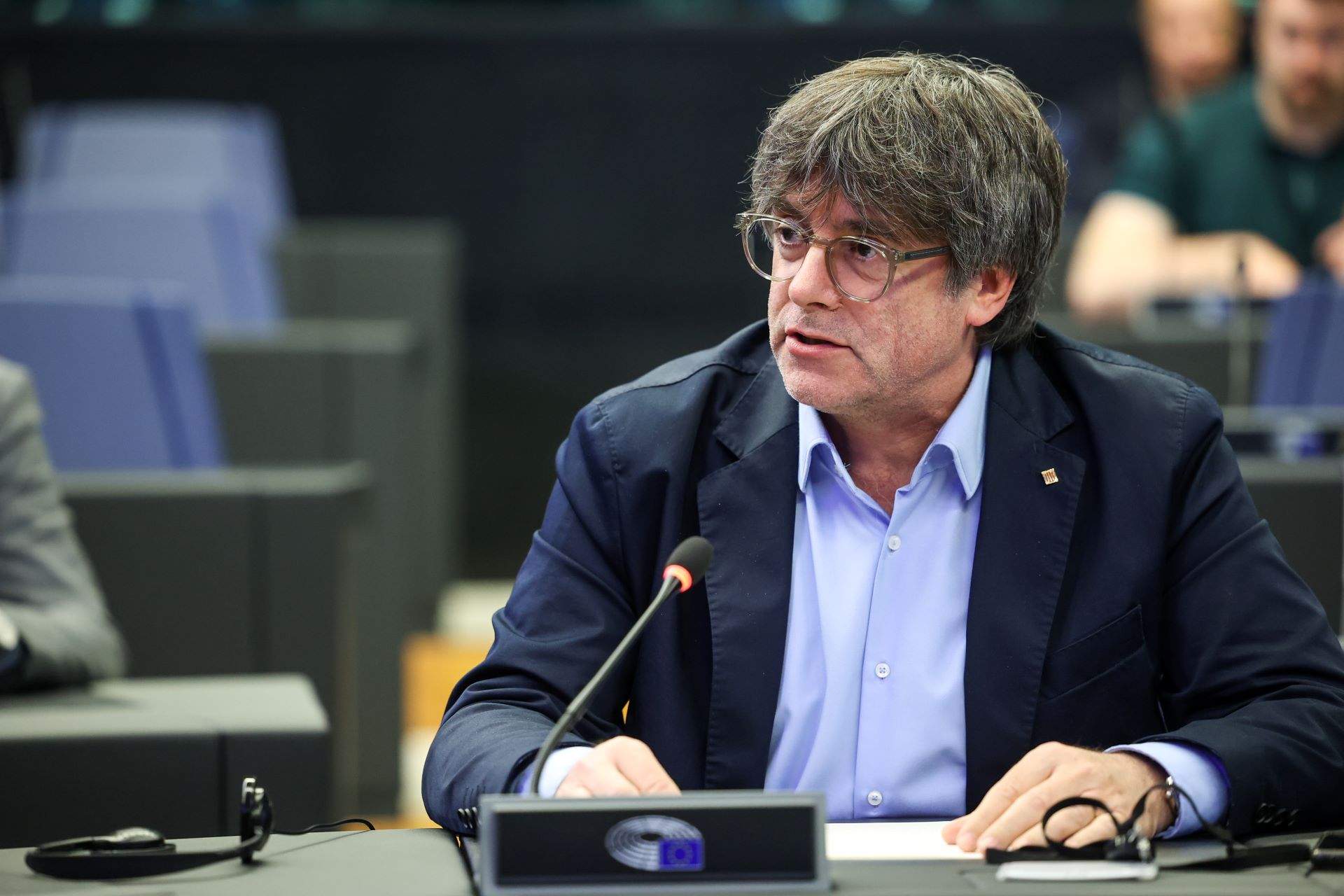The final report prepared by the prosecutors' office of the Spanish Supreme Court rejects the accusation against Catalan president-in-exile Carles Puigdemont in the Democratic Tsunami case, but does not limit itself to simply closing the issue. In her conclusions, Spain's number two prosecutor, María Ángeles Sánchez Conde, requests that the case be returned to investigative judge Manuel García-Castellón at the National Audience, with the aim of "exhausting the investigation". That is to say, despite considering that "at this moment in proceedings" there is no evidence linking either MEP Puigdemont or the Catalan MP Ruben Wagensberg with the creation or actions of the Tsunami protest platform in 2019, the prosecutor does not call for the shelving of the terrorism accusation against them, but considers that the investigation carried out so far has been insufficient and must be continued.
At the end of November 2023, García-Castellón sent an exposition of the case to the Supreme Court, calling for Spain's highest criminal court to investigate a dozen people for alleged terrorism offences, including Carles Puigdemont and the Catalan Republican Left (ERC) secretary general, Marta Rovira, in the Democratic Tsunami case. The judge argued that the investigation required inquiries to be made that the lower National Audience could not carry out, because both Puigdemont, as a member of the European Parliament, and Ruben Wagensberg, a member of the Catalan Parliament, are partially protected by parliamentary immunity, and thus proceedings would have to be elevated to the Supreme Court.
Insufficient investigation
It is precisely the fact that these inquiries have not been conducted that is one of the reasons for the senior prosecutor's response. The report by Sánchez Conde warns that the exposition made by judge García-Castellón "was not preceded by sufficient investigation to consider that Democratic Tsunami was a "structured, hierarchical organization, with an intention of permanence, directed by a number of individuals with diverse roles with areas of action in specific fields and with other people in their charge, whose essential purpose was to subvert the constitutional order, economically and politically destabilize the state, and seriously alter the public order through mass mobilization."
In the text, it is emphasized that in García-Castellón's ruling of November 6th, which opened the terrorism investigation of the Tsunami case, the judge agreed to "the practice of a multitude of inquiries" to be able to determine the nature of the facts and the involvement of those investigated. However, these proceedings were not carried out, so the judge insists in his explanation to the Supreme Court on the need to "take statements from those under investigation and other witnesses to unravel the nature and structure of the organization".
All this entails, in the opinion of the number two public prosecutor in Spain, an "enormous difficulty" in concluding the relationship between the facts; it also prevents the case from being divided up to be investigated in different courts, since this could lead to incomplete knowledge of what happened and the possibility of conflicting verdicts.
"In light of this, it seems advisable to analyze the evidence that is claimed to exist regarding the involvement of each of the defendants in the facts, to decide whether, at least with respect to them, the Supreme Court criminal chamber must assume control of the case," she adds.
No doubts about the criminal nature
Reinforcing this proposal, the report also removes any doubt about the nature of the Tsunami protest platform. "The events that are imputed to the Democratic Tsunami organization, in which [Puigdemont and Wagensberg] were allegedly integrated and whose management they took part in, in accordance with a distribution of jobs and roles, unquestionably took place with the occurrence of very serious incidents, serious confrontations with the police, which caused injuries and serious damage", asserts the prosecutor, in addition to stressing that "the criminal nature of the actions carried out under the umbrella or cover of Democratic Tsunami cannot be called into doubt and has been established in the previous proceedings".
In this regard, she points out that those investigated are not accused of direct participation in the events that took place, including the blockade of Barcelona-El Prat Airport, which she attributes to "a multitude of people who cannot be identified"; nor is it claimed that they "incited or planned these very serious incidents".
What they are accused of, she argues, is to have been part of Tsunami in terms of organization, "with the multi-offensive nature of the actions carried out by third parties under the cover of Tsunami being unimportant, although it is obvious that the integration in a criminal organization involves a plurality of participants."

